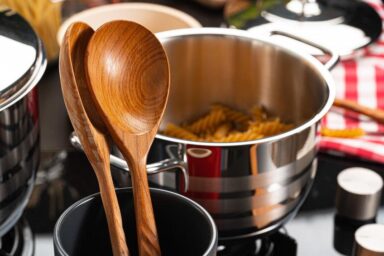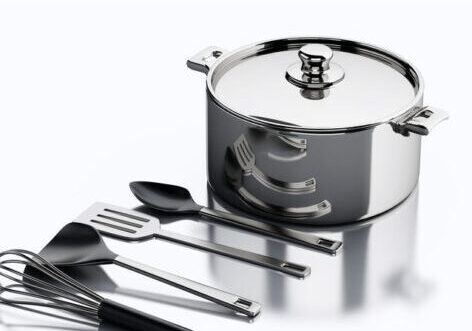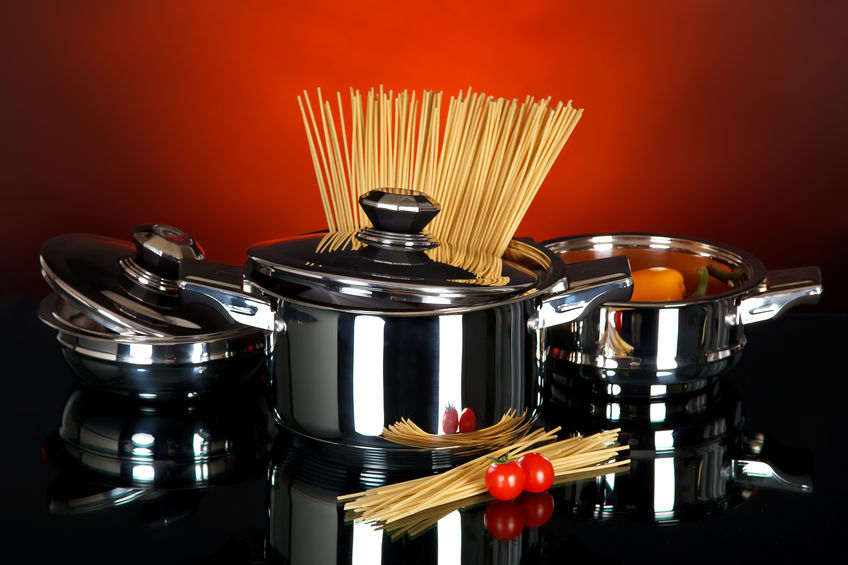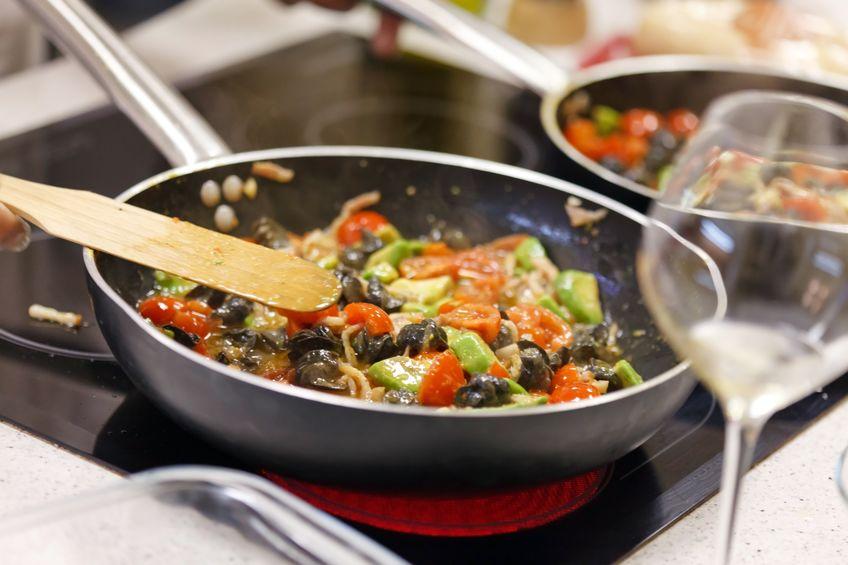

Keeping yourself and your family healthy is your top priority.
When it comes to cooking, you aim to make flavorful meals that are balanced and nutritious.
Just as important as the ingredients in your meals is the material used for your cookware.
Aluminum cookware has steadily increased in popularity since it was first developed in the 1960s.
However, more recently, there have been questions about its safety.
There are concerns that aluminum could leach into food.
If you’re looking for new cookware, it’s important to know the facts.
Let’s take a look and find out: is aluminum cookware safe?
Why is Aluminum Used for Cookware?

Aluminum is a relatively abundant and cost-effective metal.
It is widely used for industrial applications including automotive and aerospace manufacturing.
It’s a primary material used for food and beverage storage.
And, of course, it is used on cookware like pots and pans.
When looking at the benefits, it’s not hard to understand why it is used so often.
- Aluminum is a great heat conductor. It conducts faster than both iron and steel, making it more efficient than traditional cookware.
- The material is lightweight so it’s easier to handle. It’s also easier to form into cookware, so aluminum products are typically affordable despite a high level of quality.
- Despite what some stories would have you believe, aluminum is non-toxic. That’s why it’s used for soft drinks, canned food, and even alcohol containers.
- The material is easy to clean, keeping your kitchen cleanup simple and quick.
On top of all this, aluminum is one of the most recycled materials on the planet.
100% of the aluminum used in cookware can be recycled.
If you’re looking for an environmentally-conscious choice, aluminum cookware is perfect.
But… is Aluminum Cookware Safe?

In the previous points, we can see that aluminum is non-toxic, but this doesn’t tell the whole story about safety.
There are claims that aluminum cookware can contribute to conditions ranging from Alzheimer’s disease to cancer.
Aluminum doesn’t typically leach into food unless the ingredients are acidic.
Tomato sauces, vinegar-based dishes, and other acidic foods can trigger the leaching process.
The actual amount of aluminum that ends up in your food is minimal and is considered to be safe, even by the World Health Organization (WHO).
Any aluminum that ends up in food is processed by your body.
In fact, less than 1% of the aluminum that you consume from cooking and other sources is actually retained.
The rest is processed by the kidneys. Aluminum is a potential neurotoxin, but you are exposed to it in such small quantities that this won’t be a concern.
The most popular claim relating to aluminum is that it causes Alzheimer’s disease, yet there is no reputable study that has found a connection.
You can consider aluminum cookware safe, just like the United States Food and Drug Administration and European Food Safety Authority do.
Have Confidence When Buying Aluminum Cookware
When you want great value and excellent performance, you can go right ahead and choose aluminum cookware.
Most products are anodized or have a form of non-stick coating, so your food doesn’t come into direct contact with the aluminum.
- This Rachael Ray Cucina Hard-Anodized Nonstick Cookware Pots and Pans Set includes everything you need for just about any recipe you can imagine. It even comes with a spatula and ladle and is offered with a Lifetime Limited Warranty.
- If you’re looking for a more affordable option, consider this reliable Cook N Home Black 12 Piece Nonstick Hard-Anodized Cookware Set.
Aluminum cookware is safe, plain, and simple.
With a combination of affordability and non-stick performance, you’ve got plenty of options for your next cookware set.




